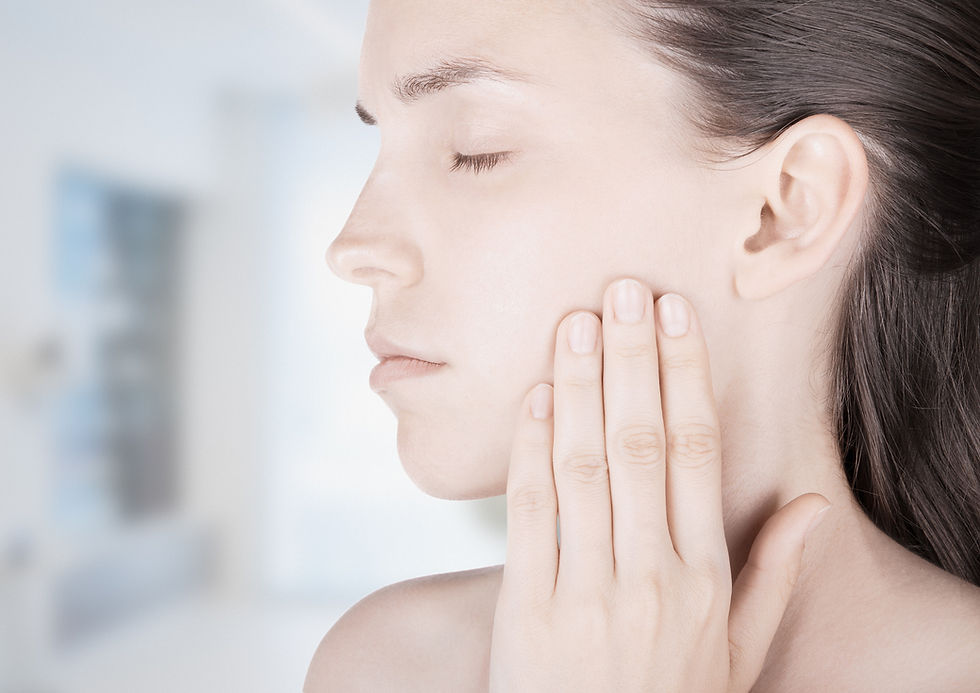What are the common causes of TMJ pain?
- Feb 25, 2022
- 2 min read
Updated: Mar 13, 2022
Patients often come to me because they are suffering from pain in front of their ears or over the side of their jaw or face. Some have been sent by their dentist, others from an Ear Nose and Throat specialist as the pain may mimic an ear infection. Often the source of this pain is from the jaw joint or in medical jargon, the temporomandibular joint (TMJ). Let’s take a look at how the jaw joint is built:

The tell-tale signs of TMJ pain are typically – a localised pain over the joint itself (directly in front of the ear) that typically gets worse when opening the mouth or when chewing. There may well be difficulty in fully opening the mouth and occasionally strange noises from the joint such as clicks or a grating noise may be experienced.
So what causes this pain?
The most common cause is trauma. This could be from a significant blow to the joint or to the jaw. This is known as macrotrauma. A more common type of trauma is known as microtrauma – a type of repetitive strain injury to the joint, usually caused by the clenching or grinding of teeth for extended periods of time or from chewing gum. This microtrauma causes cramp-like pains in the chewing muscles surrounding the jaw joint. Do you wake up with a headache over the area of your temples or with a feeling that your jaw has been locked shut overnight? This is one of the signs of night-time clenching or grinding, also known as bruxism.

As we can see in the diagram, a cartilage-like disc can be found within the joint which acts as a shock absorber, always sitting between the lower jaw and the socket of the TMJ. The tensing of jaw muscles is one of the likely mechanisms responsible for pulling the cartilage-like disc out of its normal position. The malpositioned disc may lead at first to clicking when opening and closing the mouth and eventually to chronic, persistent pain and difficulty in opening the mouth.
Other causes of TMJ pain include:
Osteoarthritis of the joint, in which the joint disc is torn or perforated and the bone of the joint degenerates.
Inflammatory arthritis such as rheumatoid or psoriatic arthritis can also affect the jaw joint as they affect other joints in the body. These conditions may need to be managed in conjunction with a rheumatologist.
Other, rare conditions such as gout, pseudogout and synovial chondromatosis may also cause swelling, pain and grating noises within the joint.
If you would like to discuss your TMJ pain further, feel free to make an appointment to come and see me so that we can explore treatment options.



Comments